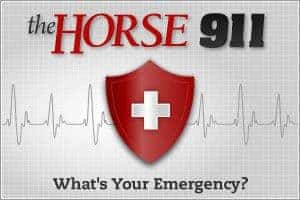Whatever You Do, Don’t Panic
Have you considered impact your behavior and habits have on your horses?
Are they cranky, flighty and upset all the time? Or calm, happy and relaxed, even around strangers? The reason this is important is that there is quite a bit of research into ethology (the scientific study of animal behavior) that shows that horses can pick up subtle cues from your body language and voice. They pay attention to details that you aren’t even aware of–the angle of your body, the position of your eyebrows, the pitch of your voice, the measured tread of your feet. In other words, they know when you are scared, when you are happy, when you are worried or angry. And this can result in their varied reactions to you on a Technical Large Animal Emergency Rescue (TLAER) scene.
Why do we care about ethology in large animal technical rescue? Because we have realized over our many years of research, development and live rescue scene responses that the human factors can have a big impact on the success (or not) of a technical extrication. And we spend time in our courses sharing that information with firefighters and other emergency responders, so that they can improve their chances of catching that loose horse on the highway, or soothing one trapped in a septic tank until help arrives.
Best personal story: Many years ago–and against better judgment because I was tired–I turned Elektra and Aerial, two of my demonstration TLAER horses, out into a friend’s brand new board fenced 20 acre pasture in Kentucky (along with Dexter, our training llama.) The next morning I called them up to eat – and nothing. No thundering hoofbeats as normally would happen. Worried, I walked thru the L-shaped pasture and around the corner sheltered by trees, I found them standing there together, calmly, with Elecktra having two legs in four wire fencing to her shoulders
Create a free account with TheHorse.com to view this content.
TheHorse.com is home to thousands of free articles about horse health care. In order to access some of our exclusive free content, you must be signed into TheHorse.com.
Start your free account today!
Already have an account?
and continue reading.
Written by:
REBECCA
Related Articles
Stay on top of the most recent Horse Health news with














